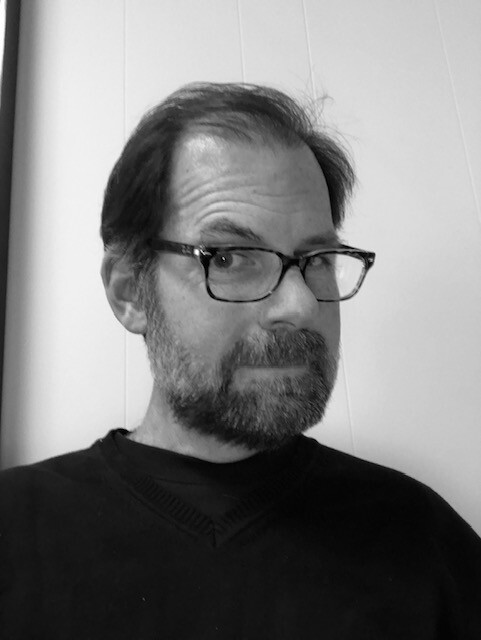by patrick getlein
I’ve seen people on Twitter recently asking different versions of the same question. What is the thing you can’t wait to do once the stay-at-home order is lifted? asks one person. What are you going to rush out and do first? asks another. Or the more directed and urgent, What restaurant are you craving right now?
As I sit at my kitchen table sipping my coffee, I can’t think of anything I’m itching to do that I can’t do right now. Run. Walk. Look at birds. Go for a bike ride. Read. I’m still able to do those things. In fact some are more enjoyable now. As for restaurants, while once I would eat out 3-5 times a week, that was life part A. I mostly make my own food, now, in life part B. Planning a week of dinners and regularly buying the staples we need for all our meals. Usually the same set of things. Some might find that boring, I guess. That’s fine. I find it a great stress reliever, as well as a time and money saver. Most important to me, though, I find it an effective way to live the life I pray for. Slower. More mindful. Focused more on things that are important: my family, my spouse, my kid. My aim is to live and move as simply as possible in an increasingly complicated and hostile world.
Watching a purple finch on the feeder outside my window I find that I don’t have urgent desires gnawing at me. I know my privilege. Still, the fact that right now I am closed off from most everything beyond routine tasks of menu planning, grocery shopping, food production, cleaning, yard work, rinse, repeat, leaves me feeling confined, constrained, and at a loss. Even though I have no particular thing I want or need to do other than the routine, I want to be able to want to do something and to know that it could happen.
Yet as I think about the pre-Corona days of constant comings and goings -- the dashing here and there, the random shopping -- and place them in the context of our current hard-pruned life, I’m left with questions: What was I doing? Where was I going? Why was I zipping around here and there randomly buying this and that? What was I even buying?
In some ways little has changed for us under the stay-at-home order. My wife has been working from home for years. I’m in the second year of my first retirement. The biggest change is our 17-year-old’s high school is now the size of their bedroom. And we are learning that we all have contrasting views on organization, work flow, and productivity. And even more strangely the backdrop for this never ending scene we’re living out is a succession of hours that render every day an order of sameness equal to yesterday and surpassed only by tomorrow’s equivalence. With the same cast every day.
But what happens next? This seclusion will end. Probably gradually. What then? Life is certain to be different. Some social rules will almost certainly change. But what about us? What about me? How will I be different? I normally fill my car with gas twice a week. I’ve topped it off twice in a month. The 25-minute drive to downtown Richmond, which was a trip I would take 2-5 times a week, sometimes more, along Interstates and local toll roads, seems long and unnecessary, now. I’ve gone in twice to restock on coffee beans from my local merchant. That seems extravagant. And church? Wow! Turns out you can do a church service in 20 minutes. What’s more surprising to me, I’m not missing every Sunday communion.
Zoom worship has been a fascinating exercise in what Wallace Stevens in “Of Modern Poetry” calls the “act of finding what will suffice.” I do miss the physical presence of the community. I miss human contact beyond spouse, child, and a few socially-distanced neighbors. It’s a much bigger world I operate in. But I don’t miss the stress of the 30-minute commutes; of early arrival for choir practice; or staying after for altar guild; of performance; of spending 9 a.m.-1 p.m. at church or in transit. That’s a long church day.
More unexpectedly, Corona Church has become a more personal, intimate experience. I’m doing yoga while listening to our Facebook Live Morning Prayer. Like an interactive podcast, with earbuds in I recite the prayers and responses in my head or whisper them into the air. Meditating on the homily while folded in the Child’s Pose. Contemplating my community during the Prayers of the People in the Hero’s Posture. After 20 minutes or so, worship and stretching done, I have time to go for a meditative run. So now I’m left with this question: why all the extra stuff? It’s all different now. And there may be no return to what was. As Stevens writes: “Then the theatre was changed/To something else/Its past was a souvenir.”
In this as in most things I turn to God with lamentation and petition, but not for divine intervention. If I ever did that, I abandoned the practice somewhere along the road from A to B. I don’t believe in God as a benevolent magician waiting to be asked for things and dispensing remedies as they see fit -- or not. That’s not my theology. I’ve come to think of God more like the Wizard of Oz. Great and terrible; terrifyingly powerful; a clapper of thunder; a flasher of lightning; almighty and all-knowing -- characteristics humans have attributed to deities since forever -- yet in the end a touchstone serving to reveal to us our own divine nature and our own power.
Through our prayers and meditations God tells us about ourselves. What we pray for is to listen, and to have the divine courage to see and claim our power and put it to use in the world, wherever we are placed in the world, for good. Waiting for God to fix something is easy. Also, kind of lazy. Doing it yourself with your God-given talent, and resources, and within your spheres of influence, that’s harder. But, that’s our Ruby Slippers moment. “Oh will you help me? Can you help me?” cries Dorothy. “You don’t need to be helped any longer,” says Glinda. “You've always had the power to go back to Kansas.”

